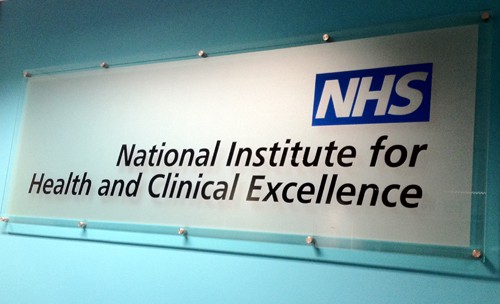
England’s cost effectiveness watchdog NICE is to start charging pharmaceutical companies for appraisals of their drugs from April 2019, despite considerable resistance from the industry and other stakeholders.
The fee for single technology appraisals (STAs) and highly specialised technology appraisals (HTAs) will be £126,000 ($158,500, €140,400).
The government has made a major concession to small companies (those with a turnover of less than £36m, a balance sheet total of not more than £18m, and not more than 250 employees) who will receive a 75% discount on these charges, resulting in a fee of £31,500.
The new charges are expected to generate £10m annually, and are necessary because the government has cut NICE’s funding and simultaneously increased its workload in recent years – the number of STAs having more than doubled in the last four years and set to keep rising.
This budget pressure first led NICE to raise the idea of fees in August 2016, but concerted opposition from pharma – and its demands for reform of its appraisal methodology in return – saw the idea shelved for a period.
However the proposal was resurrected this year, and now despite most consultation respondents opposing the move (mainly pharma or patient organisations), fees for appraisals will be introduced from April.
The government’s response to the consultation shows that a majority of respondents (62%) disagreed with the charges, though also notes that just over half of responses (51%) agreed that life sciences companies should “contribute to the cost of developing NICE recommendations.”
The charges have been confirmed just days after a new 5 year UK pricing deal was finalised between the Department of Health and Social Care (DHSC) and the industry representative body the ABPI.
The ABPI had suggested an alternative solution to the fees question, in which rebates from this scheme (or the parallel statutory scheme) would be paid annually by the industry as a whole, and adjusted to take account of the expected cost of HST or TA recommendations. However the DHSC concluded this arrangement was “outside its statutory powers.”

The ABPI’s Dr Richard Torbett
Dr Richard Torbett, Director of Commercial Policy at the ABPI “The pharmaceutical industry has made it clear that it is willing to contribute financially to the cost of NICE appraisals. Our preference had been to administer this through a one-off annual payment, shared by the entire industry, rather than charges for individual appraisals. As the government has chosen not to pursue this approach we urge an early review to ensure there are no unintended consequences.”
The government has confirmed that it will monitor the charges and conduct a review two years after the fees are introduced in April.
The charges were also opposed by some NHS organisations, but often for different reasons. The most notable of these was the fear that industry fees would give companies inappropriate influence over NICE, including “reputational risk to NICE as a result of perceived or actual conflicts of interest” and “long term impacts of industry expecting and seeking further influence over process.”
However the government rejected these concerns, saying that NICE’s policy on managing interests was updated in 2018 and that companies (excluding small companies) will be charged before appraisals begin, and are therefore not dependent on their outcome.




